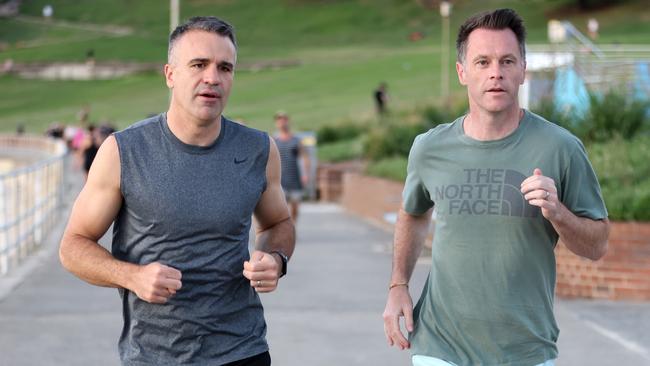Medicare bulk-billing collapse hurting public hospitals, says Premier Peter Malinauskas
Cratering Medicare bulk-billing rates are hammering public hospitals and the state government needs help, says Premier Peter Malinauskas.
SA News
Don't miss out on the headlines from SA News. Followed categories will be added to My News.
Cratering Medicare bulk-billing rates are putting an “extraordinary burden” on the public hospital system and should be a major reform focus for wall-to-wall mainland Labor governments, says Premier Peter Malinauskas.
Arguing states cannot “do it alone” because they have “got their hand tied behind their back”, Mr Malinauskas said Saturday’s election of a NSW Labor government meant leaders had a common set of values to confront the nation’s big challenges, including health.
Emergency department wait times skyrocketed by almost 70 per cent, according to annual comparisons for 12-day periods in February released on Monday by the Opposition.
Asked about his year-old government’s vow to fix ambulance ramping, Mr Malinauskas said public health reform was not merely “a dollars question”.
“State governments have got their hand tied behind their back when it comes to the policy levers required to be pulled to address the performance of the public hospital system, and what I’m talking about, specifically, is our primary health system, or Medicare,” he told Sky News Australia.
“Bulk-billing rates in South Australia, as is the case around the nation, are collapsing. They are cratering before our eyes. And if Australians can’t get in to see a GP, then they get sicker and when they get sicker, they end up in hospital and it’s putting an extraordinary burden on the hospital system.
“So we’ve got to be able to have engagement between states and the Commonwealth if we’re going to address problems such as these.”

Health Minister Chris Picton survived a no-confidence motion in state parliament last Thursday, when the Opposition accused him of walking away from an iron-clad election promise to “fix the ramping crisis”.
Opposition Leader David Speirs on Monday demanded Mr Malinauskas explain the “shocking surge” in public hospital emergency department wait times, which Liberal analysis showed soared by 69.2 per cent over two separate 12-day periods this February and last.
Sick patients across Adelaide’s major hospitals waited a total of 8242 minutes for a bed in the 12-day period this February, compared to a total of 4870 minutes in a separate 12-day period the previous February.
“Peter Malinauskas promised to fix ramping and not only is that worse than ever, but emergency department wait times have also blown out of control,” Mr Speirs said.
“Put simply, this means when South Australians require urgent medical attention, they may be forced to wait hours and hours.”
Just three months after winning office in March last year, Mr Malinauskas joined state leaders in a push for a fundamental reform of federal-state funding arrangements for public health, unsuccessfully arguing for a 50:50 split introduced during the Covid-19 pandemic to continue – rather than return to states shouldering 55 per cent.
A new deal is not due until 2025. An even split would mean the federal government injecting an extra $5bn into public hospitals each year.
Federal Health Minister Mark Butler in February revealed five new Medicare urgent care clinics would open in South Australia under a $135m national plan to ease pressure on hospital emergency departments.
This followed the release of a Strengthening Medicare Taskforce report, which had recommendations including improving access to after-hours primary health care and reducing pressure on emergency departments by increasing primary care services for urgent needs.
At the time, Mr Butler, also the Hindmarsh MP, said it had “never been harder to see a doctor” and declared it was “time for reform” of Medicare.





